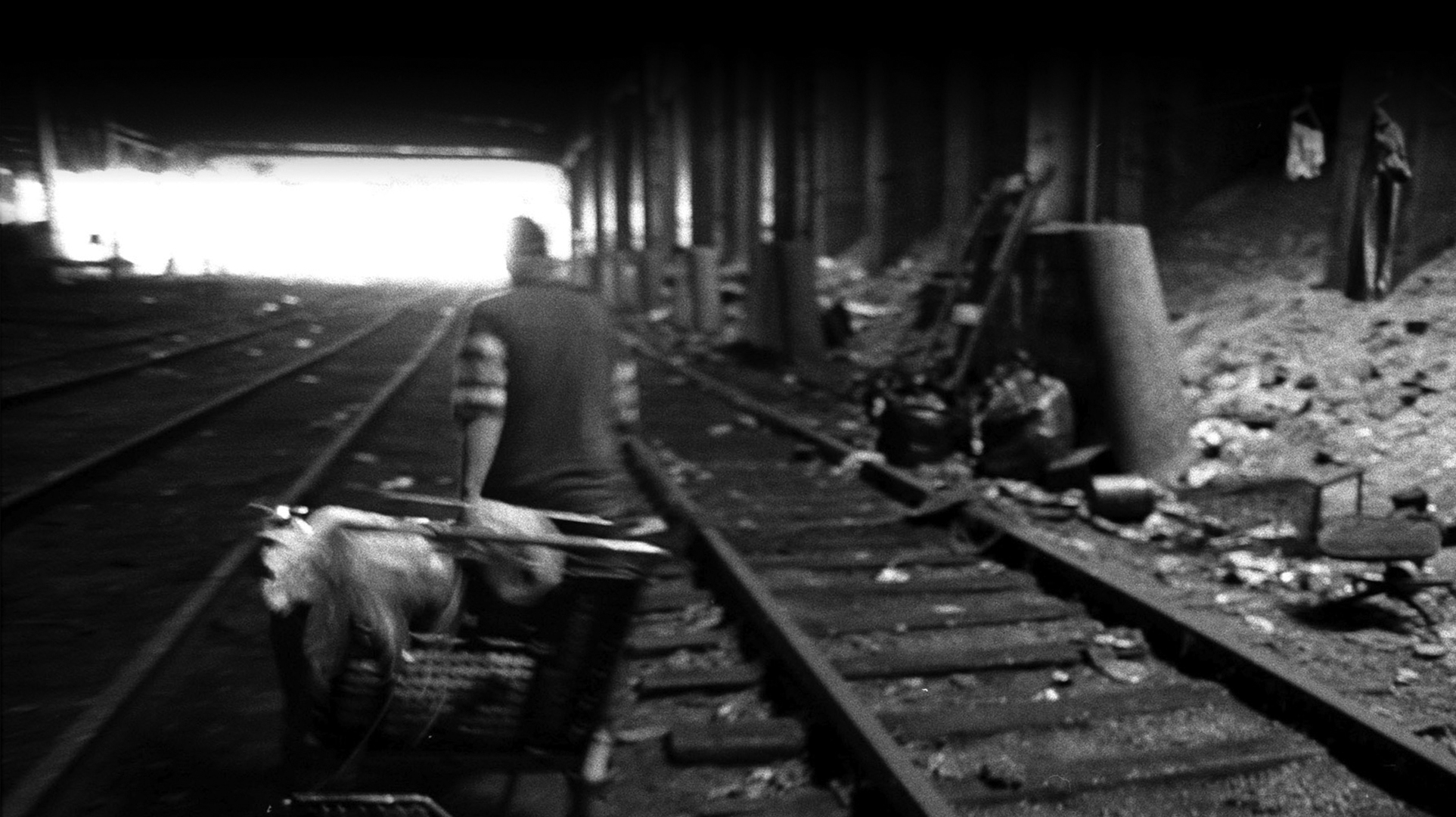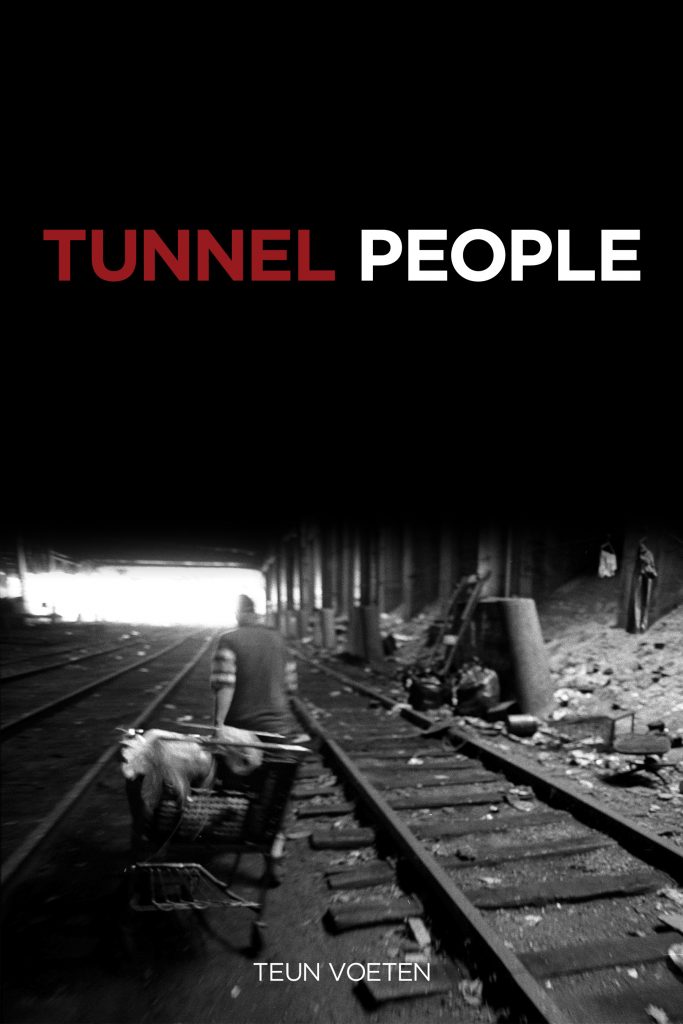By Ryan Bell
Molossus Blog
December 15, 2010
Teun Voeten is not the first to document the lives of the people living in the tunnel systems of New York City. His newly updated account, Tunnel People, is unique, however, because of Voeten’s commitment not only to his craft, but also to the people. Articles and books have been written about the tunnel people and Mark Singer’s award winning documentary, Dark Days, introduced the world to this underground society in what Voeten himself calls a “shockingly honest portrayal.” But Voeten went a step further, living in the Amtrak tunnel on Manhattan’s west side for five months over two years, digging beneath the surface of the tunnel people’s lives as well as their complex and diverse social environment. “To add something new to the earlier studies,” Voeten writes in the introduction to his book, “I decided to take the anthropological approach, using its favorite research method of participant observation” (3).
During Voeten’s time living in the tunnel, Amtrak closed the tunnel, evicting all the residents. City and federal agencies made valiant efforts to place the tunnel people in permanent housing. Now, thirteen years later, Voeten has reestablished communication with as many of the former tunnel people as he can find. In a brand new Part 4, Voeten describes where his friends are and how they are faring. Some have successfully integrated into life up top while other have not. Some have returned to the streets, others have died, a few have overcome some remarkable challenges.
Voeten is no stranger to dangerous situations having covered more than a dozen conflict zones as a photo journalist, he brings all his unique talent and experience to bear upon this subject.
There is no shortage of people who want to help the homeless, serve the homeless, even study the homeless. There are federal and local programs to end homelessness in ten years. These efforts have a range of motivations, from sparing the rest of us the visual obstacle of people living on our streets to moral outrage over the inhumanity of allowing widespread suffering to continue unchecked. Those in a position to help others don’t often stop to consider how those on the receiving end experience that help. Many of the tunnel people didn’t consider themselves homeless at all. Indeed, the tunnel was their home. Voeten’s account gives us a window into this complexity
Yesterday, Frankie was also approached by an outreach worker. He holds the same kind of grudge as Bernard toward the do-gooders that try to intervene in his life. This time it was a friendly man who gave him a baloney sandwich and offered him a place to stay, that is to say, a city-operated shelter. Of course, Frankie was deeply offended.
“What the fuck do they think they’re talking about?” Frankie says angrily. “A shelter and a lousy sandwich! I told the guy, ‘Come to my place, I’ll make coffee and cook burgers and we gonna watch the ballgame on TV.’ But this asshole, he didn’t dare to come down.” It sounds like it was Do-Gooder Galindez again. “Something wrong with the system,” Frankie ponders, “when you got those guys making thirty grand a year driving fancy cars and handing out baloney sandwiches” (105).
Still, life on the streets—or in a tunnel—is difficult and dangerous. It’s hard to escape the conclusion that people are not meant to live this way, even when so many willingly chose it. The tension between respect for people’s choices and the outrage over a society that structures life in such a away that so many get left behind is not easily resolved. Handing out baloney sandwiches is not the answer.
As someone who regularly encounters homeless people on the streets of Los Angeles and interacts with half a dozen social service agencies working among the homeless, I found Voeten’s book deeply insightful and helpfully frustrating. Tunnel People offers a penetrating vision of a slice of life that is uniquely American, recounted by a uniquely qualified Dutch writer.
Ryan Bell is senior pastor of Hollywood Seventh Day Adventist Church, which was awarded the North American Division’s Award for Most Innovative Church in 2010. Bell writes for a wide range of publications, including the Huffington Post, and works very closely with many LA-based and national organizations to promote social justice.








